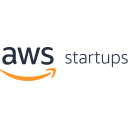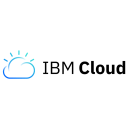Google Cloud vs IBM Cloud: Choosing the right cloud solution
- 01Google Cloud (GCP) vs IBM Cloud: overview
- 02What's the difference between Google Cloud (GCP) and IBM Cloud?
- 03Google Cloud (GCP) pros and cons
- 04IBM Cloud pros and cons
- 05Google Cloud (GCP) compared to IBM Cloud
- 06IBM Cloud compared to Google Cloud (GCP)
- 07Features comparison
- 08Google Cloud (GCP) vs IBM Cloud: Which is the best for your business?
- 09Promotions on Cloud Computing software
- 10Alternatives to Google Cloud (GCP) & IBM Cloud
Save up to $350,000 on Google Cloud (GCP)
Save up to $350,000 on Google Cloud (GCP)
Effective cloud infrastructure is crucial for optimizing operations, enhancing data security, and supporting scalable applications. The solution? Choosing the right cloud services provider. Google Cloud and IBM Cloud offer robust platforms that serve as the foundation for hosting, computing, and managing applications across diverse environments.
However, with the diverse offerings available, it can be challenging to select the right cloud service that fits your specific needs. In this article, we aim to streamline your decision-making process by comparing two leading solutions—Google Cloud vs. IBM Cloud. After a detailed exploration of their key features, pricing models, and distinct advantages, you will be better equipped to determine which cloud provider aligns best with your business's infrastructure needs.
Google Cloud (GCP) vs IBM Cloud: overview
Google Cloud and IBM Cloud are major players in the cloud computing industry, each offering distinctive features and advantages tailored to diverse business requirements.
Google Cloud is renowned for its high-performance computing capabilities and deep integration with Google's extensive suite of AI and machine learning tools. It offers a flexible and scalable platform that supports a wide array of applications, from data analytics to machine learning, making it a favorite among developers and enterprises looking to leverage advanced technologies. On the other hand, IBM Cloud is celebrated for its robust security features and strong emphasis on enterprise solutions. It provides a highly secure and customizable environment that is particularly suited to industries with strict compliance and data protection standards.
Now, let's dive into the Google Cloud vs. IBM Cloud comparison to help you make an informed decision when selecting the right cloud provider for your specific needs.
What's the difference between Google Cloud (GCP) and IBM Cloud?
Google Cloud and IBM Cloud are both comprehensive cloud platforms designed to cater to a wide variety of computing needs, facilitating business agility and digital transformation. Both providers offer robust functionalities including IaaS (Infrastructure as a Service) and PaaS (Platform as a Service) capabilities, but there are notable differences in their services and core strengths that might influence your decision based on your specific requirements.
One of the primary distinctions between Google Cloud and IBM Cloud is their core infrastructure and services focus. Google Cloud is renowned for its cutting-edge data analytics, machine learning capabilities, and extensive integration with other Google services. It leverages Google's global network, which is considered one of the largest and most advanced in the world, providing significant benefits in terms of latency and security. Additionally, Google Cloud excels in containerization with Kubernetes, originally developed by Google, which makes it a preferred choice for developers looking to deploy, manage, and scale containerized applications.
On the other hand, IBM Cloud is particularly strong in hybrid cloud environments and legacy system integration. IBM offers robust solutions for enterprise clients looking to integrate cloud with their existing on-premises hardware or private clouds, largely leveraging its Red Hat acquisition to enhance these capabilities. This is especially beneficial for industries with stringent compliance and regulatory requirements, such as banking and healthcare. IBM Cloud also places a strong emphasis on AI and blockchain technologies, with specialized infrastructure and services like Watson AI and IBM Blockchain.
The approach to open-source software and community engagement also differs significantly between the two. Google Cloud actively contributes to and supports numerous open-source projects, which promotes innovation and community-driven development. IBM Cloud, while also supportive of open-source, focuses more on proprietary solutions and providing extensive support services which can be a deciding factor for enterprises needing specialized assistance.
In summary, while Google Cloud might be the go-to for companies looking for top-tier machine learning tools and a strong global infrastructure, IBM Cloud could be more attractive to those needing robust hybrid cloud solutions and specific enterprise-level services.
$2,000 in credits for 1 year if you never raised funds // $350,000 in credits for 2 years if you did on Google Cloud (GCP)
Get $2,000 in credits for 1 year if you never raised funds // $350,000 in credits for 2 years if you did on Google Cloud (GCP) and up to $350,000 savings with Secret.
Google Cloud (GCP) pros and cons
What are the advantages of Google Cloud (GCP)?
- Scalability: Google Cloud offers excellent scalability, allowing businesses to easily scale their resources up or down based on demand. This scalability is especially useful for handling fluctuations in traffic and workloads.
- Global infrastructure: Google Cloud has a vast network of data centers located around the world. This global infrastructure ensures low latency and high performance for users regardless of their location.
- Advanced AI and machine learning services: Google Cloud provides a wide range of AI and machine learning services, including natural language processing, image recognition, and predictive analytics. These services enable businesses to build intelligent applications without needing extensive expertise in AI.
- Security: Google Cloud offers robust security features, including encryption at rest and in transit, identity and access management, and DDoS protection. Google invests heavily in security and compliance to ensure that customer data remains safe and protected.
- Integration with other Google Services: Google Cloud seamlessly integrates with other Google services such as Gmail, Google Workspace, and Google Analytics. This integration makes it easier for businesses already using these services to adopt Google Cloud and streamline their workflows.
What are the disadvantages of Google Cloud (GCP)?
- Complex pricing structure: Google Cloud's pricing structure can be complex and difficult to understand, especially for users who are new to cloud computing. It's important for businesses to carefully monitor their usage to avoid unexpected costs.
- Less enterprise adoption: While Google Cloud is gaining traction, it still lags behind competitors like AWS and Azure in terms of enterprise adoption. This could potentially lead to fewer third-party integrations and community support compared to more established cloud platforms.
- Limited support options: Google Cloud's support options may not be as comprehensive as those offered by other cloud providers. Businesses may find it challenging to get timely support, especially during critical incidents.
- Learning curve: Google Cloud's services and interfaces can be complex, especially for users who are new to cloud computing. Businesses may need to invest time and resources in training their teams to effectively utilize Google Cloud's capabilities.
- Dependency on Google services: While integration with other Google services can be a benefit, it also means that businesses become more dependent on Google's ecosystem. This dependency may not be desirable for organizations looking to maintain vendor neutrality.
Compare Google Cloud (GCP) to other tools
IBM Cloud pros and cons
What are the advantages of IBM Cloud?
- Enterprise focus: IBM Cloud has a strong focus on serving enterprise customers, offering a wide range of services tailored to meet the needs of large organizations. This includes services for hybrid cloud environments, multi-cloud management, and industry-specific solutions.
- Security and compliance: IBM Cloud provides robust security features and compliance certifications, making it suitable for highly regulated industries such as finance, healthcare, and government. IBM invests heavily in security to ensure that customer data remains protected.
- Hybrid cloud capabilities: IBM Cloud offers extensive support for hybrid cloud deployments, allowing businesses to seamlessly integrate their on-premises infrastructure with cloud resources. This flexibility enables organizations to leverage the benefits of cloud computing while maintaining control over sensitive data and legacy systems.
- Strong AI and data analytics portfolio: IBM Cloud provides a comprehensive suite of AI and data analytics services, including Watson AI, IBM Cloud Pak for Data, and IBM Watson Studio. These services enable businesses to derive valuable insights from their data and build AI-powered applications.
- Global network of data centers: IBM Cloud has a global network of data centers located in key geographic regions around the world. This extensive infrastructure ensures low latency and high availability for users, regardless of their location.
What are the disadvantages of IBM Cloud?
- Complexity: IBM Cloud's offerings can be complex and challenging to navigate, especially for users who are new to cloud computing. The platform encompasses a wide range of services and solutions, which can make it difficult for businesses to determine the best approach for their specific needs.
- Limited market share: IBM Cloud trails behind competitors like AWS, Azure, and Google Cloud in terms of market share and adoption. This could potentially result in fewer third-party integrations and community support compared to more popular cloud platforms.
- Cost: IBM Cloud's pricing structure may not be as competitive as other cloud providers, especially for smaller businesses or startups with limited budgets. It's essential for organizations to carefully assess their usage and consider potential costs before committing to IBM Cloud.
- Less developer-friendly: IBM Cloud may not be as developer-friendly as some other cloud platforms, with fewer tools and resources available for developers. This could be a drawback for businesses looking to rapidly prototype and deploy applications in the cloud.
- Integration challenges: Integrating IBM Cloud with existing IT systems and workflows can sometimes be challenging, especially for organizations with complex legacy environments. Businesses may need to invest time and resources in ensuring seamless integration with their existing infrastructure.
Compare IBM Cloud to other tools
Google Cloud (GCP) compared to IBM Cloud
Google Cloud and IBM Cloud both offer robust solutions for businesses seeking cloud services. Google Cloud boasts a global infrastructure, advanced AI capabilities, and seamless integration with other Google services. Its scalability and security features make it attractive for a wide range of applications.
On the other hand, IBM Cloud stands out with its enterprise focus, strong security and compliance offerings, and extensive support for hybrid cloud deployments. While Google Cloud is favored by those seeking cutting-edge AI and machine learning solutions, IBM Cloud appeals to organizations requiring comprehensive enterprise solutions and industry-specific expertise.
Is Google Cloud (GCP) better than IBM Cloud?
Deciding whether Google Cloud is better than IBM in a general sense can be challenging, as the right choice depends heavily on specific business needs and objectives. For companies that prioritize innovative AI tools and a vast network of global data centers, Google Cloud might be the superior option.
Conversely, businesses needing tailored solutions with a strong emphasis on regulatory compliance may find IBM Cloud more fitting. Both platforms provide powerful security measures and scalability, but the decision ultimately hinges on whether an organization values cutting-edge technology or specialized industry focus and support for complex hybrid environments.
What is Google Cloud (GCP) best used for?
Google Cloud is best used for a variety of purposes, including hosting websites and web applications, managing big data and analytics, developing and deploying machine learning models, and building scalable and reliable cloud-native applications. Its global infrastructure, advanced AI and machine learning services, and seamless integration with other Google services make it particularly suitable for businesses looking to innovate and scale their operations.
Google Cloud's flexibility, scalability, and security features make it an ideal choice for startups, enterprises, and organizations across various industries seeking to leverage the power of the cloud for their digital transformation initiatives.
Can Google Cloud (GCP) replace IBM Cloud?
While both Google Cloud and IBM Cloud offer robust cloud solutions, the decision to replace one with the other depends on specific business requirements. Google Cloud's strengths lie in its advanced AI and machine learning capabilities, global infrastructure, and seamless integration with other Google services. However, IBM Cloud is renowned for its enterprise focus, strong security, and compliance offerings, as well as extensive support for hybrid cloud deployments.
While Google Cloud may be suitable for organizations prioritizing innovation and scalability, IBM Cloud's industry-specific expertise and enterprise-grade solutions may better serve businesses with complex regulatory requirements and hybrid infrastructure needs.
Is Google Cloud (GCP) cheaper than IBM Cloud?
Determining whether Google Cloud is cheaper than IBM Cloud depends on various factors such as usage, services utilized, and specific pricing plans. Google Cloud’s pricing is often competitive, especially for certain services like storage and compute. However, IBM Cloud may be more cost-effective for enterprises requiring extensive support for hybrid cloud deployments and industry-specific solutions.
Additionally, pricing structures and discounts can vary between providers, making direct comparisons complex. Businesses should carefully evaluate their requirements, consider potential costs, and leverage cost management tools provided by both platforms to optimize spending and ensure they choose the most cost-effective option for their needs.
Is there a better Cloud Computing software than Google Cloud (GCP)?
Determining whether there's a "better" software than Google Cloud depends on your specific cloud computing needs and objectives. Google Cloud is renowned for its global infrastructure, advanced AI and machine learning capabilities, and seamless integration with other Google services, making it a top choice for many businesses.
However, alternatives to Google Cloud like IBM Cloud, AWS (Amazon Web Services) and Microsoft Azure may better suit certain organizations. AWS is known for its extensive service offerings and market dominance, while Azure offers strong hybrid cloud capabilities and integration with Microsoft products.
$2,000 in credits for 1 year if you never raised funds // $350,000 in credits for 2 years if you did on Google Cloud (GCP)
Get $2,000 in credits for 1 year if you never raised funds // $350,000 in credits for 2 years if you did on Google Cloud (GCP) and up to $350,000 savings with Secret.
IBM Cloud compared to Google Cloud (GCP)
IBM Cloud and Google Cloud are both prominent players in the cloud computing market, each with its own strengths and specialties. IBM Cloud is tailored towards enterprise users, offering robust security features, compliance certifications, and extensive support for hybrid cloud deployments. It excels in providing industry-specific solutions and services for regulated industries.
On the other hand, Google Cloud is renowned for its advanced AI and machine learning capabilities, global infrastructure, and seamless integration with other Google services. It appeals to businesses seeking innovation, scalability, and cutting-edge technology solutions.
Is IBM Cloud better than Google Cloud (GCP)?
Determining if IBM Cloud is better than Google Cloud depends largely on the unique demands and strategic direction of a business. Organizations that require a cloud service with deep enterprise integration, particularly in sectors with strict regulatory requirements, might find IBM Cloud more advantageous. It catifies the needs of businesses seeking comprehensive hybrid cloud options and specialized industry solutions that are tailored to specific regulatory landscapes.
While Google Cloud offers expansive AI resources and global reach, IBM Cloud's focus on enterprise-grade security and specific compliance standards can be crucial for companies in healthcare, finance, and other sensitive sectors.
What is IBM Cloud best used for?
IBM Cloud is best used for enterprise-grade cloud solutions, offering robust security, compliance, and support for hybrid cloud environments. It excels in providing industry-specific solutions for regulated sectors such as finance, healthcare, and government. IBM Cloud's extensive suite of services caters to various enterprise needs, including AI and data analytics, application modernization, and blockchain solutions. Its focus on hybrid cloud deployments enables businesses to seamlessly integrate on-premises infrastructure with cloud resources.
With a strong emphasis on reliability, scalability, and industry expertise, IBM Cloud is ideal for organizations seeking comprehensive cloud solutions tailored to their specific business requirements and regulatory compliance needs.
Can IBM Cloud replace Google Cloud (GCP)?
While both IBM Cloud and Google Cloud offer robust cloud solutions, the decision to replace one with the other depends on specific business requirements. IBM Cloud's strengths lie in its enterprise focus, strong security, and compliance offerings, as well as extensive support for hybrid cloud deployments.
However, Google Cloud excels in advanced AI and machine learning capabilities, global infrastructure, and seamless integration with other Google services. Whether IBM Cloud can replace Google Cloud depends on factors such as workload requirements, industry regulations, and the need for specific AI or machine learning functionalities.
Is IBM Cloud cheaper than Google Cloud (GCP)?
Assessing the cost-effectiveness of IBM Cloud versus Google Cloud requires a nuanced understanding of each platform's pricing and the specific needs of an organization. While Google Cloud might present lower costs for standard services like compute and storage, IBM Cloud’s pricing could offer more value for companies that heavily rely on hybrid cloud solutions and require specialized support.
The choice hinges on the nature of the business's operations and the kind of cloud services they prioritize. It's crucial for companies to thoroughly analyze their usage patterns and consult the detailed pricing tools both providers offer, ensuring the chosen platform aligns financially and functionally with their strategic goals.
Is there a better Cloud Storage software than IBM Cloud?
Determining whether there's a superior cloud provider to IBM Cloud depends on your specific cloud computing needs and objectives. Various alternatives cater to diverse business requirements.
Alternatives to IBM Cloud include Google Cloud, Oracle Cloud, DigitalOcean, and Vultr, each offering unique strengths. For instance, Google Cloud is renowned for its advanced AI and machine learning capabilities, Oracle Cloud provides comprehensive solutions for enterprise workloads, DigitalOcean offers simplicity and affordability for developers, and Vultr specializes in high-performance cloud infrastructure.
Features comparison
Google Cloud Surpasses IBM Cloud in User-Friendliness
When it comes to ease-of-use, Google Cloud significantly surpasses IBM Cloud. Google Cloud's intuitive user interface drastically reduces the learning curve for newcomers to cloud computing. For example, Google Cloud's console offers a streamlined dashboard, making it easy to navigate and manage services.
In contrast, IBM Cloud's interface, while robust in features, can be daunting for beginners. Google Cloud provides step-by-step guides and clear platform layouts, simplifying tasks like setting up VM instances or configuring storage buckets. This user-friendly approach empowers users to efficiently manage their cloud services, enhancing productivity and ease of adoption for businesses of all sizes.
Google Cloud Dominates Big Data and Analytics with Comprehensive Toolset
Google Cloud stands out for its comprehensive suite of big data and analytics tools, surpassing IBM Cloud's offerings in this domain. For instance, Google Cloud provides BigQuery for scalable and cost-effective data warehousing and analytics, Dataflow for stream and batch data processing, and Dataprep for data preparation and cleansing. These tools enable businesses to harness the power of their data for insights and decision-making.
In contrast, while IBM Cloud offers services for storing, managing, and using structured data, its portfolio lacks the depth and breadth of Google Cloud's big data and analytics toolset, positioning Google Cloud as the preferred choice for organizations seeking advanced data processing capabilities.
Google Cloud Leads Integration Superiority Over IBM Cloud
On the integration front, Google Cloud clearly takes the lead over IBM Cloud, thanks in part to its comprehensive integration capabilities across various categories. For example, within the productivity tools category, Google Cloud offers seamless connectivity with Google Workspace elements like Gmail and Google Docs, facilitating an interconnected suite of services. Additionally, in the analytics sphere, it integrates with Google Analytics, providing deep insights into data-driven decision-making processes. For application management, Google Cloud's integration with Kubernetes Engine exemplifies its capabilities in orchestrating and managing containerized applications efficiently.
In contrast, IBM Cloud also supports integrations, though its ecosystem isn't as expansive or as deeply integrated as Google's. This breadth of integration options in Google Cloud enables businesses to streamline operations and enhance productivity, thus providing a clear edge in the cloud computing landscape.
Google Cloud Outshines IBM Cloud in Storage Solutions Diversity
Benefiting from Google's esteemed infrastructure, Google Cloud offers a diverse range of storage solutions that surpass IBM Cloud's offerings. For example, Google Cloud's Cloud Storage provides highly scalable and durable object storage, ideal for storing and accessing large volumes of data. Additionally, Cloud SQL offers managed relational databases, ensuring efficient data management and accessibility, while Cloud Bigtable excels in providing NoSQL database solutions for high-performance, scalable applications.
In contrast, IBM Cloud, while offering data storage and backup options, lacks the breadth and depth of storage solutions provided by Google Cloud. This diverse range of storage offerings from Google Cloud empowers businesses to effectively manage their data needs and scale their operations with ease.
IBM Cloud Takes the Lead in Automation Versatility
Automation is a strength of IBM Cloud. Its robust suite of automation tools empowers businesses to streamline workflows and boost internal operations efficiency. For instance, IBM Cloud offers AI-powered automation solutions like Watson AIOps, which intelligently automate IT operations, detecting and resolving issues proactively.
While Google Cloud also provides automation features within its services, such as auto-scaling and managed services, IBM Cloud's depth and versatility in automation, spanning across various domains from IT operations to development workflows, are widely acknowledged as superior. This extensive automation toolkit from IBM Cloud enables businesses to achieve greater agility and productivity gains in their operations.
Google Cloud and IBM Cloud Provide Equally Robust Security Features
Both Google Cloud and IBM Cloud are renowned for their robust security features, ensuring the protection of sensitive data and cloud resources. For example, Google Cloud offers a comprehensive suite of security tools, including Identity and Access Management (IAM) for fine-grained access control, encryption at rest and in transit to safeguard data, DDoS protection to mitigate cyber threats, and Cloud Security Command Center for centralized security management and threat detection.
Similarly, IBM Cloud provides robust security measures, including encryption, access controls, and compliance certifications, ensuring the integrity and confidentiality of data. With such robust security offerings, both platforms provide a secure environment for businesses to operate in the cloud.
Google Cloud Compute Engine Outperforms IBM Cloud Developer Tools
Google Cloud's Compute Engine service sets a high standard for flexibility, reliability, and performance in cloud computing. For example, Compute Engine provides users with on-demand access to highly customizable virtual machines (VMs), allowing them to tailor resources to suit their specific application requirements. These VMs run seamlessly, powering applications, websites, and services with efficiency and reliability.
While IBM Cloud offers developer tools for infrastructure and environment development, the performance and reliability of Google Cloud's Compute Engine far surpass the capabilities of IBM Cloud's offerings. This ensures users experience optimal performance and reliability when utilizing Google Cloud's infrastructure services.
Subscribe to our newsletters.
No FOMO here. Stay up-to-date on all the latest deals and news with our monthly newsletter straight to your inbox like 127,000+ entrepreneurs (+ Get 10% off on on our Premium Membership!)
Google Cloud (GCP) vs IBM Cloud: Which is the best for your business?
Google Cloud (GCP) is the best tool for you if:
- You're looking for leading-edge AI and machine learning tools, as it integrates seamlessly with advanced AI services like AutoML and TensorFlow.
- Scalability is a priority, with its ability to dynamically adjust resources based on demand, ensuring cost-effective operations for growing businesses.
- You require deep integration with other Google services such as Google Workspace and Android, facilitating a streamlined workflow across various platforms.
- You value robust data analytics capabilities, with access to powerful tools like BigQuery and Google Data Studio for insightful, real-time data analysis.
- Your projects benefit from a global network, as Google Cloud's extensive and resilient infrastructure supports applications with a worldwide reach.
IBM Cloud is the best tool for you if:
- Your business operates in heavily regulated industries such as healthcare or finance, requiring strong compliance and security features tailored to specific regulatory needs.
- Hybrid or multicloud strategies are essential to your IT infrastructure, with IBM's extensive experience in supporting complex, integrated environments across on-premises and cloud.
- You demand dedicated enterprise-grade support and industry-specific solutions that are customizable to meet the unique challenges and requirements of large organizations.
- Continuity and disaster recovery are critical, with IBM Cloud offering robust recovery and continuity services to ensure minimal downtime and data loss.
- You prefer a vendor with a broad set of blockchain, AI, and IoT services that can be leveraged for specialized projects, enhancing capabilities beyond standard cloud offerings.
$2,000 in credits for 1 year if you never raised funds // $350,000 in credits for 2 years if you did on Google Cloud (GCP)
Get $2,000 in credits for 1 year if you never raised funds // $350,000 in credits for 2 years if you did on Google Cloud (GCP) and up to $350,000 savings with Secret.
Alternatives to Google Cloud (GCP) & IBM Cloud
Promotions on Cloud Computing software
Start saving on the best SaaS with Secret.
Secret has already helped tens of thousands of startups save millions on the best SaaS like Google Cloud (GCP), IBM Cloud & many more. Join Secret now to buy software the smart way.














